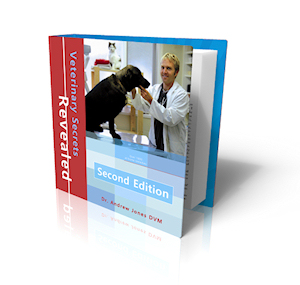Augh! Enough with the questions already, right? Any emergency is stressful and scary, and one involving that furry little four-legged member of your family is no exception. The toughest of owners can be instantly reduced to helpless balls of mush if something's wrong with their dogs and they can't figure out what to do.

1. Preparation is key:
The first and most imporatant thing is to prepare for these dog health problems! The key to getting through a veterinary emergency is preparation. You may think you have that covered with a first aid kit and having the phone number to your vet handy, but what if there isn't enough time to move your dog?
You need to be well-versed in some of the more common animal emergencies just in case a situation ever arises. And hey, if a situation never arises, you'll still feel more confident knowing that you have the ability to deal with one. http://dog-food-secrets.eoltt.com
2. Know how to care for wounds:
Did you know that you shouldn't use hydrogen peroxide on a bleeding wound? Nope. It slows clotting to the area, which means your dog could actually lose more blood than he would if you didn't use the peroxide at all. In fact, the best way to treat a deep, severely bleeding wound is to apply a clean cloth and hold it in place for five minutes, then tape the cloth to the wound. That original cloth should never be removed – that also slows clotting – and should instead be layered with more clean cloths if blood soaks through.
3. Know what to do about poisoning:
Poisoning: Did you know that certain varieties of toads, salamanders, newts, and other amphibians are poisonous if licked? Hey, guess who loves to hold little woodland critters in his mouth! Your dog. If you notice your pup drooling, whining, and wiping at his mouth after a trip into the forest, get him to a clean water source and rinse his mouth thoroughly. While the poison can be fatal if left in the mouth, it's fairly easy to cleanse from the tongue and glands.

Now imagine all of the scenarios that can happen to your dog, from fractured limbs to choking and everything in between. Do you really want to risk not knowing how to handle them? You don't have to anymore, since I've written Secrets to a Healthy and Happy Dog to help you learn how to cope with nearly any emergency as well as have the basis for handling all of the everyday and lifelong problems and situations you'll face with your dog. From choosing toys to cancer and everything in between, it's all in the book… as well as how to create the most effective first aid kit and handle the most common emergencies. Listen, even the most experienced dog owner needs a little help and advice now and then.
Hotel Business And Leisure Portal
Accorhotels.com, the hotel business and leisure portal. We offers our customers almost 4,000 hotels in 90 countries from budget to luxury (Ibis, Suitehotel, Dorint, Mercure, Novotel, Sofitel)
Obinna Heche: Los Angeles- California
To find excellent information about Dog Training, Dog Behaviour, Dog Obedience Training, Dog Food, Dog Health, Grooming And Dog Care. Everything that concerns Dog Owners and their Dogs.. Visit.. http://myspace.com/biggso
2 comments:
More about dealing with any wounds:
Treating wounds on a dog should be seen the same as treating them on a person. As above in the original post, stop the bleeding. Once this has been achieved however, you will want to prevent or treat any infection. Clean the wound as best you can, and look to apply an antiseptic cream.
A novel way would be to use active manuka honey, a natural antiseptic.
Cons: it does leave a sticky layer, so you will want to dress or bandage the wound after applying to prevent the honey being spread elsewhere, and to prevent your dog from licking it off.
Pros: It not only treats any infection in the wound, but creates a barrier to other infection. And unlike other antiseptic creams, it is just honey, so is not poisonous if it does get licked.
Disclaimer: the poster is friends with someone at above website link, but used this honey himself, so will leave you to make your own conclusions or do other research.
Hi I liked your blog, I'm going to tell my sister about it she cares for dogs. she's a fostermom to them. would like you to join my directory? http://www.weblog-index.com thanks, shelly
Post a Comment